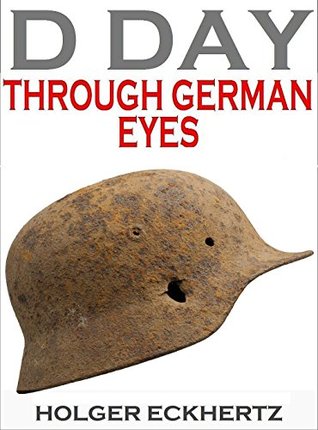More on this book
Community
Kindle Notes & Highlights
Read between
July 26 - August 3, 2018
I think that first light came at about five am, and it slowly revealed the beach to us. Nothing was changed there; the sand was studded with large numbers of steel obstacles, and these were very prominent as the tide was out. The sky was overcast and the offshore wind was quite strong. As time passed, with my binoculars, as I scanned the horizon, I began to see many shapes materialise. The sea was slightly foggy out there, but I could still see first a handful of shapes, then more, and finally an absolute wall of these grey outlines stretching almost across the whole horizon.
This reminds me of my favorite scenes from the motion picture THE LONGEST DAY. As a German officer looked out with his binoculars over the Channel from his bunker, the fog lifted to reveal thousand of Allied ships.
All of us men who had binoculars stood and stared at this apparition, while the other men demanded to know what we were looking at. We handed the binoculars around for a few seconds, and many of the men took a look. Their reactions varied, ranging from curses to a kind of apprehensive laughter, or just silence. In the meantime, our Feldwebel was on the cable phone speaking to the officer’s post. He came to us at the parapet and said, ‘Men, they’re coming now, they’re coming in strength. We must be ready,’ or something straightforward like that.
In the same scene related above, the officer calls HQ to report the sighting of five thousand ships. The reply is that "the enemy doesn't have half that many ships." Later HQ asks where the ships are heading. The officer shouts STRAIGHT AT ME.
We were not politically sophisticated, any of us, but at that time we trusted the state message that an attack on France was an attack on a united Europe and on the Reich itself.
The Americans we were more afraid of, possibly, because of their industrial power. It was said they waged war the way a rich man wages war, with lots of machines and no worry about the gasoline or the amount of ammunition.
Firstly, there is the motivation of the German troops, which repeatedly returns to the question of ‘defending France’ or ‘defending a united Europe’ against various international forces. I found this surprising when I first read the interviews, but, when I investigated German propaganda of the late war period, I found that this was in fact a very common message. The presence of the idea in the interviewees’ statements shows, probably, how effectively this idea was communicated by the regime’s propagandists.


